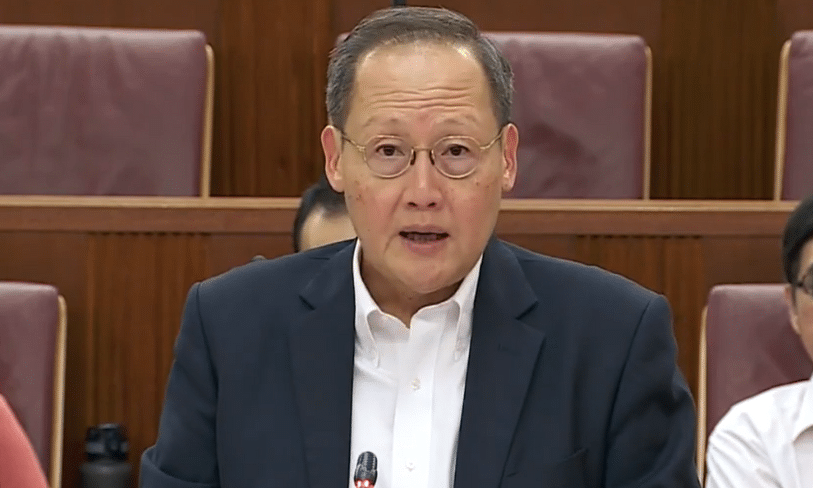SINGAPORE: Minister for Manpower Dr Tan See Leng has stated that there are no plans to expand the insurance coverage for the Work Injury Compensation Act (WICA) 2019.
This is said in a written response on Monday (5 February) to a parliamentary question from Bukit Batok SMC Member of Parliament, Mr Murali Pillai of the People’s Action Party, where he asked whether the scope of WICA may be reviewed to include injuries and death of migrant workers arising from accidents at dormitories so as to broaden the insurance coverage for the same.
Dr Tan stated that WICA covers all employees, and employers’ obligations under WICA are specifically scoped to work-related injuries. and added that WICA was introduced as a no-fault claims regime to enable employees to claim compensation for injuries that occurred during work in a fair and expeditious manner, without having to resort to legal action.
Mr Murali also inquired about the number of migrant workers who sustained injuries while in their dormitories, which are not covered by work injury insurance, for each of the past five years.
Dr Tan clarified that non-work-related injuries sustained by migrant workers at their dormitories are not covered by WICA.
Therefore, the ministry does not track such injuries, as WICA only covers injuries arising out of and during work.
He further stated that affordable non-work injury insurance options are available for migrant workers.
Migrant workers can register for the Migrant Workers’ Centre Associate Membership, which provides insurance coverage for death, total and permanent disability, and critical illnesses not arising from work, at S$6 for the first year and S$24 annually for subsequent years.
Additionally, migrant workers’ medical expenses, including those from non-work-related injuries, will be covered by the employer via mandatory medical insurance or otherwise, as required under the Employment of Foreign Manpower Act.
Migrant workers face struggle to access insurance in Singapore
On 30 January, Transient Workers Count Too (TWC2), a migrant worker advocacy group, brought to light the ordeal of a Bangladeshi worker known as Alom (pseudonym) and the challenges he faced in accessing essential medical treatment.
Alom missed a critical opportunity to address a workplace finger injury that required immediate surgery.
This unfortunate situation allegedly arose because the employer only issued a Letter of Guarantee for the treatment 33 days after the accident, purportedly due to their reluctance to provide the necessary formal commitment to cover the costs of major medical or surgical procedures.
Regrettably, by the time Alom consulted a doctor, he was informed that it was too late.
Debbie Fordyce, President of TWC2, highlighted the systemic issue wherein employers are permitted to withhold urgent medical treatment even against doctors’ advice.
According to TWC2, Alom suffered injuries to his right index and middle fingers on 25 October last year when he was on a scissor lift.
His hand got wedged against a pipe during the incident. Upon the occurrence, the site safety supervisor attended to him and cleaned the wound, but he was not immediately taken to a hospital emergency department. Instead, he was simply given paracetamol for pain relief.
After Alom was granted medical leave and provided with a letter to his boss, emphasizing the urgency of surgery within five days, his employer and agent allegedly attempted to persuade Alom to return to Bangladesh for treatment.
Challenges faced by migrant workers in accessing insurance
Under the Work Injury Compensation Act (WICA), employers must secure WIC insurance for both local and foreign workers, comprising two main categories.
The initial classification pertains to work injury compensation, with a statutory minimum coverage of S$45,000 for medical expenses, while the second category involves medical insurance aimed at covering treatment for health conditions unrelated to work injuries.
TWC2 pointed out that despite the existence of these regulations, obtaining coverage from the worker’s standpoint remains a significant obstacle.
Employers persist in their role as gatekeepers, possessing the authority to determine when to activate the insurance.
TWC2 further underscored the matter, indicating that by granting employers control over the timing of insurance utilization, various stipulations can be enforced, thereby undermining the humanitarian objectives associated with mandating insurance coverage.

